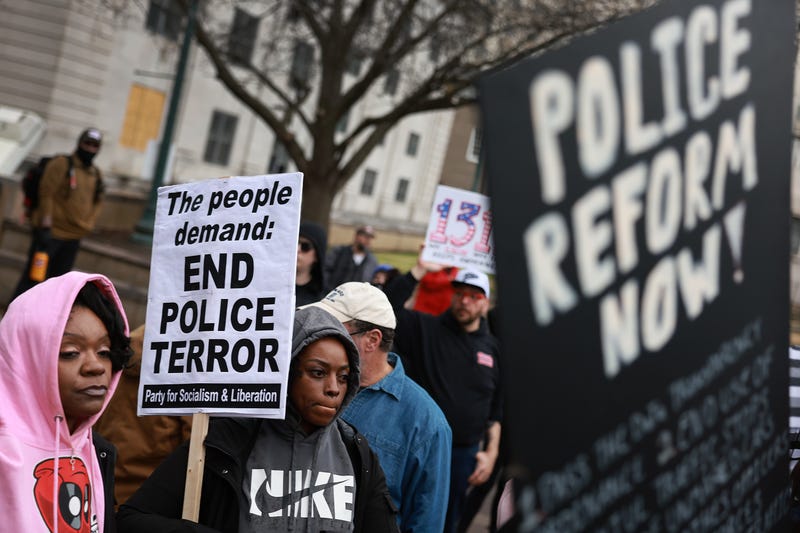
PHILADELPHIA (KYW Newsradio) — In the wake of the Tyre Nichols slaying, a Memphis City Council member has introduced legislation that’s based on Philadelphia’s driving equality law that its sponsor said was intended to prevent what’s known as “driving while Black.”
Nichols, who was Black, died three days after police stopped his car and subdued him. Five Black officers — Tadarrius Bean, Demetrius Haley, Emmitt Martin III, Desmond Mills Jr. and Justin Smith — were fired and charged with murder.
Memphis Councilwoman Michalyn Easter-Thomas says the city has not received a good explanation for why Nichols was stopped, so she can’t say whether the driving equality law, which prohibits police stops for minor violations, would have prevented Nichols' death.
But she believes it could prevent a future tragedy.
“We want to minimize, erase, and eradicate any opportunity for this to happen again,” she said.
Philadelphia’s law bars police from stopping cars for seven low-level offenses:
- Having one tail light out
- Improper location for window permits
- Items hanging from the rear view mirror
- Late registration
- Minor bumper damage
- Past due emission and inspection stickers
- Relocation of a license plate
It took effect last March, and a report on its effectiveness is due next month.
“I’m thankful Philadelphia has put this forth, and I’m thankful to be able to work with them to put forth this prospective policy in my hometown,” said Easter-Thomas.
Councilmember Isaiah Thomas sponsored the Philadelphia law. He said at the time of its passage that 72% of Black Philadelphians have been pulled over, while 90% of stops were for code violations that did not warrant a ticket.
“Driving equality isn’t the end-all, be-all solution, but it is a method of acknowledging the problem and it speaks to the intent of trying to get it right,” said Thomas.
He said a dozen other cities have adopted similar measures, but being the model for Memphis is particularly meaningful.
“It’s powerful. For the councilmembers in Memphis to consider this legislation, especially after the recent situation, is nothing but an honor,” said Thomas.
Easter-Thomas’s bill is nearly identical to Philadelphia’s. It’s one of six that have been proposed since Nichols’ death. Her bill passed a first round of voting this week, but would have to pass two more times to become law in Memphis.




